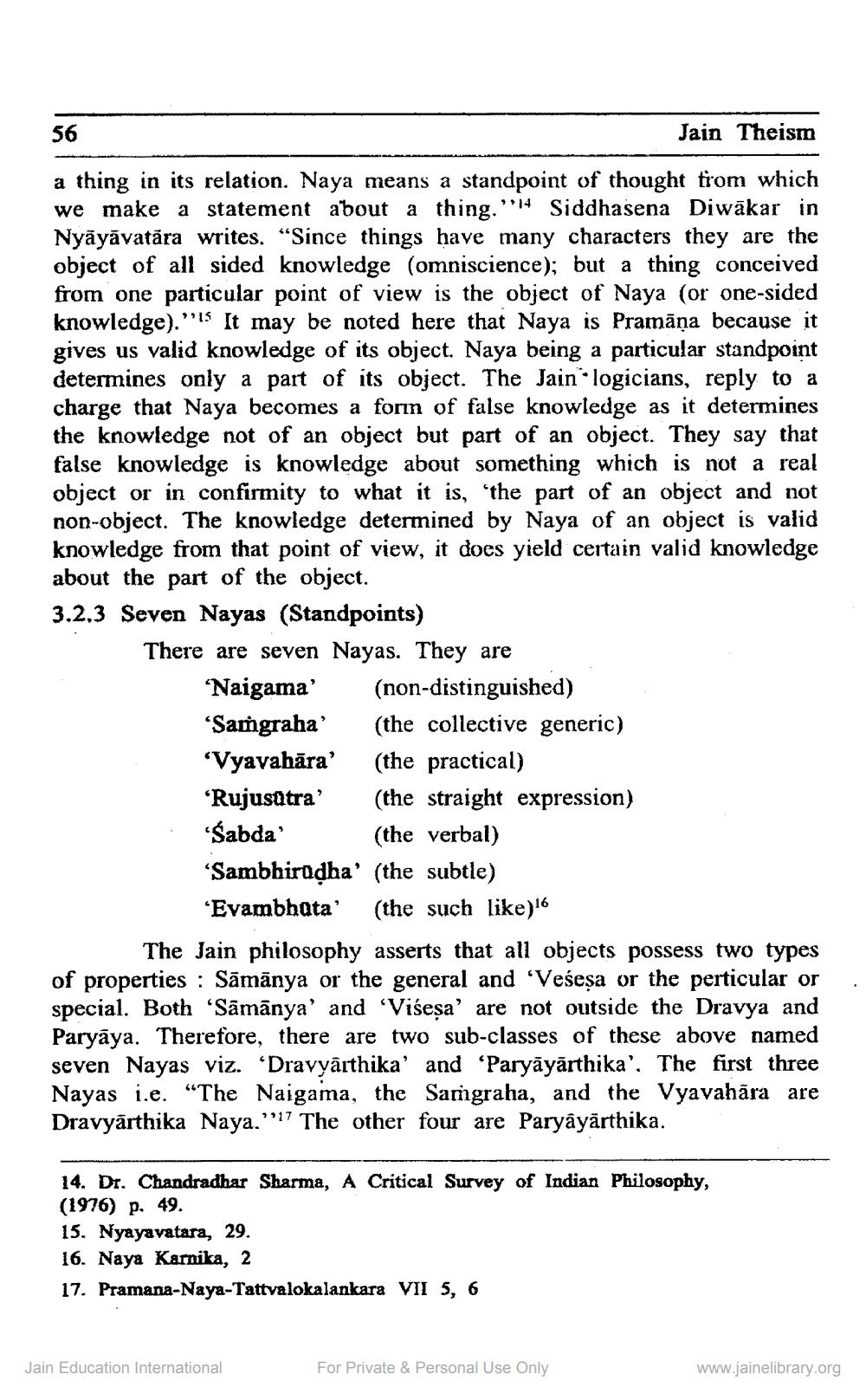________________
56
Jain Theism
a thing in its relation. Naya means a standpoint of thought from which we make a statement about a thing."4 Siddhasena Diwakar in Nyāyāvatāra writes. “Since things have many characters they are the object of all sided knowledge (omniscience); but a thing conceived from one particular point of view is the object of Naya (or one-sided knowledge)." It may be noted here that Naya is Pramāņa because it gives us valid knowledge of its object. Naya being a particular standpoint determines only a part of its object. The Jain logicians, reply to a charge that Naya becomes a forn of false knowledge as it determines the knowledge not of an object but part of an object. They say that false knowledge is knowledge about something which is not a real object or in confirmity to what it is, 'the part of an object and not non-object. The knowledge determined by Naya of an object is valid knowledge from that point of view, it does yield certain valid knowledge about the part of the object. 3.2.3 Seven Nayas (Standpoints)
There are seven Nayas. They are
Naigama' (non-distinguished) ‘Samgraha' (the collective generic) 'Vyavahāra' (the practical) "Rujusutra? (the straight expression) Sabda' (the verbal) Sambhirodha' (the subtle)
'Evambhata' (the such like)16
The Jain philosophy asserts that all objects possess two types of properties : Sāmānya or the general and 'Veśesa or the perticular or special. Both 'Sāmānya' and 'Višesa' are not outside the Dravya and Paryāya. Therefore, there are two sub-classes of these above named seven Nayas viz. “Dravyārthika' and 'Paryāyārthika'. The first three Nayas i.e. “The Naigama, the Samgraha, and the Vyavahāra are Dravyārthika Naya."'17 The other four are Paryâyarthika.
14. Dr. Chandradhar Sharma, A Critical Survey of Indian Philosophy, (1976) p. 49. 15. Nyayavatara, 29. 16. Naya Karnika, 2 17. Pramana-Naya-Tattvalokalankara VII 5, 6
Jain Education International
For Private & Personal Use Only
www.jainelibrary.org




